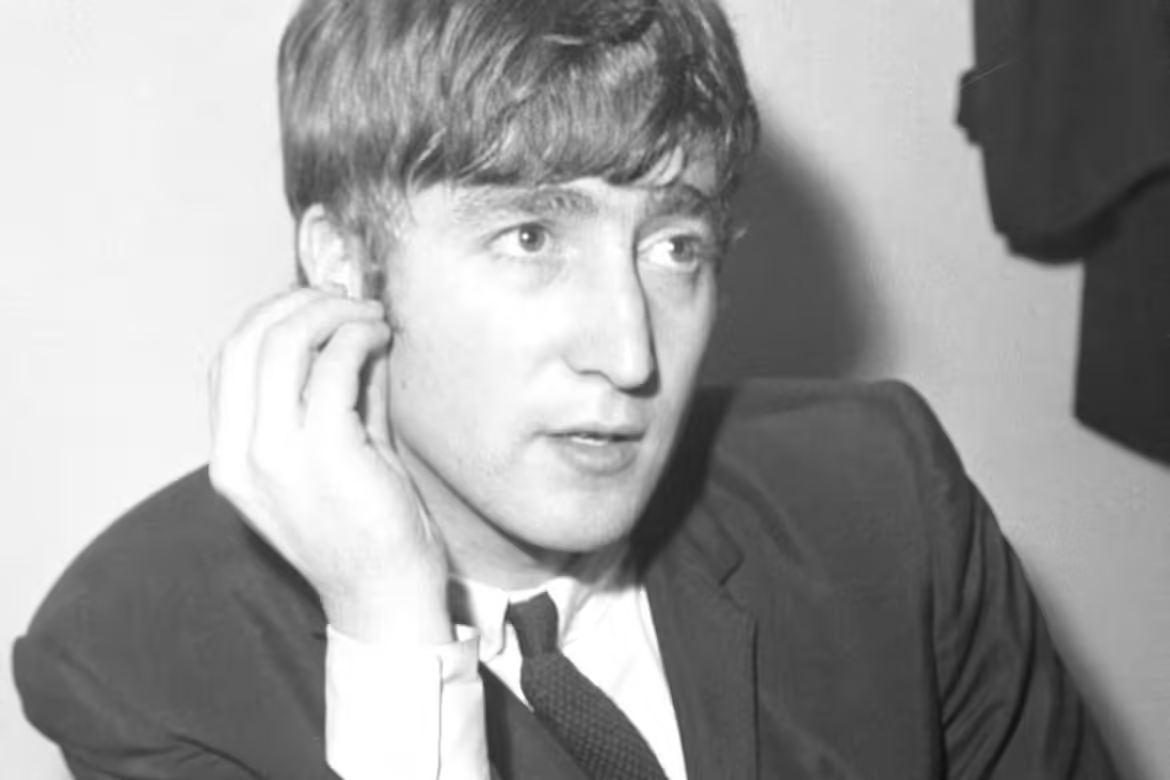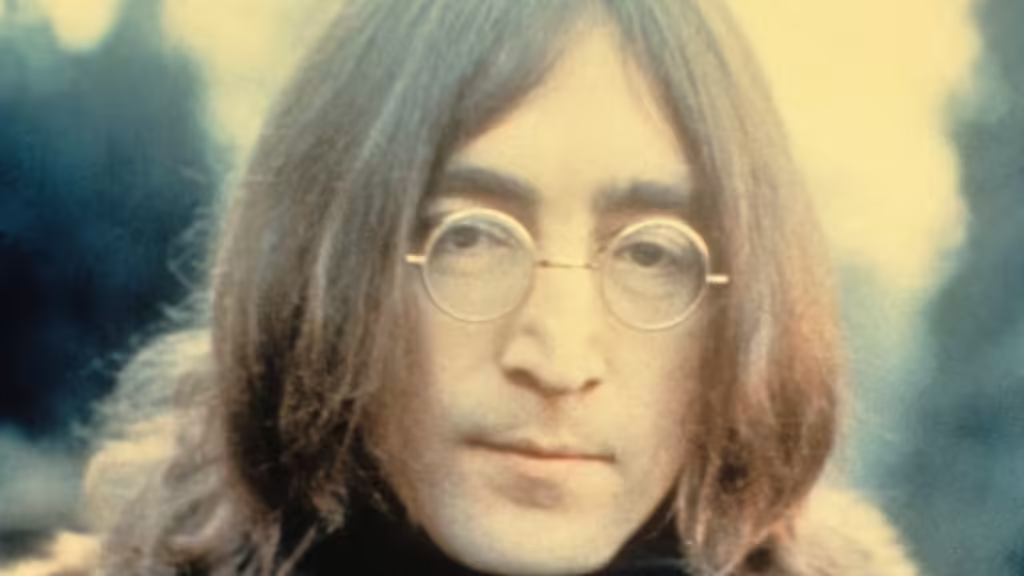
John Lennon, born John Winston Lennon on October 9, 1940, in Liverpool, England, was one of the most influential figures in 20th-century music and pop culture. A singer, songwriter, and peace activist, Lennon rose to global fame as a founding member of The Beatles, a band whose impact on music, society, and culture is still felt today. His career spanned beyond The Beatles, as he became an outspoken activist for peace and a solo artist whose work continues to inspire generations. Lennon’s life was marked by creativity, rebellion, and an unwavering desire to change the world through art, though it was tragically cut short when he was murdered in New York City on December 8, 1980.
Early Life and Musical Beginnings
John Lennon was born during World War II to Julia and Alfred Lennon, a seaman who was often away, leaving his mother to raise him alone. His tumultuous childhood was shaped by his parents’ separation, and Lennon was largely raised by his Aunt Mimi. Despite the instability in his early family life, Lennon found solace in music. His mother, Julia, nurtured his musical interests, introducing him to instruments like the banjo and piano. By the time he was a teenager, Lennon was already passionate about rock ‘n’ roll, drawing inspiration from American musicians like Elvis Presley, Chuck Berry, and Buddy Holly.
In 1956, Lennon formed his first band, The Quarrymen, a skiffle group that played a mix of folk, jazz, and blues. It was during this time that Lennon met Paul McCartney, who would later become his songwriting partner and bandmate in The Beatles. The two bonded over their love for music and began collaborating, with McCartney bringing a melodic sense to Lennon’s raw rock energy.
The Beatles: A Global Phenomenon
Lennon, McCartney, along with George Harrison and later Ringo Starr, officially formed The Beatles in 1960. Over the next decade, The Beatles would revolutionize not just music but the entire cultural landscape of the 1960s. The “Lennon-McCartney” songwriting partnership produced some of the most famous songs of the era, including hits like “Help!,” “A Hard Day’s Night,” “All You Need Is Love,” and “I Want to Hold Your Hand.”
John Lennon’s contribution to The Beatles was often characterized by a sharp wit, a rebellious attitude, and a deeper introspective quality. Songs like “Nowhere Man” and “Strawberry Fields Forever” reflect Lennon’s complex inner life and his willingness to question both himself and the world around him. His music ranged from joyful pop tunes to more experimental tracks influenced by his interest in avant-garde art, and his lyrics often conveyed a searching, existential quality that resonated with the countercultural movement of the 1960s.
The Beatles also became a cultural force for change, with Lennon as a key figure. The band’s hairstyles, fashion choices, and candid commentary on politics and society challenged conventional norms. As The Beatles’ fame skyrocketed, so did Lennon’s public persona as a cultural provocateur. This led to moments of controversy, such as when Lennon famously remarked that The Beatles were “more popular than Jesus” in 1966, a statement that sparked outrage in the United States but also highlighted Lennon’s penchant for stirring public debate.
The Yoko Ono Influence and The Break-Up of The Beatles
As The Beatles’ success grew, John Lennon’s personal life took a dramatic turn when he met Japanese artist Yoko Ono in 1966. Their relationship was not only a romantic partnership but also a profound artistic collaboration. Lennon’s bond with Ono was a significant factor in his growing interest in avant-garde art, social activism, and experimental music. Their relationship drew criticism from some fans and even caused friction within The Beatles, contributing to the band’s eventual break-up in 1970.
Ono inspired much of Lennon’s later work, both musically and politically. Together, they staged “Bed-Ins for Peace” in 1969, a form of peaceful protest against the Vietnam War. Their song “Give Peace a Chance” became an anthem for the anti-war movement, underscoring Lennon’s transformation from a pop star to a voice for social change.
John Lennon’s split from The Beatles marked the end of an era, but it also allowed him to pursue a solo career where he could explore his political and personal beliefs more freely. His first post-Beatles album, “John Lennon/Plastic Ono Band“ (1970), is often considered one of his most powerful works, featuring raw, confessional songs like “Mother” and “Working Class Hero” that reflect Lennon’s emotional struggles and his critique of social inequities.
Solo Career and Activism
Lennon’s solo career continued to produce influential music that addressed both personal and global issues. His 1971 album “Imagine” contains what is arguably his most famous song, “Imagine,” a utopian vision of a world without war, borders, or divisions. The song became an instant classic and is still widely regarded as a global anthem for peace.
John Lennon’s activism during the 1970s was as prominent as his music. He became involved in political causes, particularly opposing the Vietnam War, and befriended radicals like Abbie Hoffman and Jerry Rubin. His outspoken opposition to U.S. foreign policy made him a target of the Nixon administration, which attempted to have Lennon deported from the United States. Despite this, Lennon remained steadfast in his beliefs, using his platform to speak out on issues ranging from racism to workers’ rights.
During his so-called “lost weekend” period in the mid-1970s, Lennon experienced personal and professional turbulence, including a temporary separation from Yoko Ono. However, by 1975, Lennon had reunited with Ono and withdrew from the public eye to focus on raising their son, Sean Lennon. It wasn’t until 1980 that Lennon made a comeback with the album “Double Fantasy,” which featured a mix of songs by both Lennon and Ono and marked a hopeful new chapter in his life.

Legacy and Tragic Death
On December 8, 1980, just weeks after the release of “Double Fantasy,” John Lennon was tragically shot and killed outside his home at the Dakota Building in New York City by Mark David Chapman, a deranged fan. His sudden death shocked the world, and his legacy as a cultural icon was cemented in the wake of his assassination.
John Lennon‘s influence on music, art, and activism remains profound. As a musician, he helped redefine the boundaries of popular music, blending rock ‘n’ roll with introspective lyrics, political messages, and experimental sounds. As a public figure, he became a symbol of the counterculture movement, embodying the spirit of peace and rebellion.
Songs like “Imagine” continue to be performed at peace rallies and humanitarian events around the world, and his music remains a staple in the cultural consciousness. Lennon’s message of peace, love, and resistance to authority resonates today as strongly as it did in the turbulent 1960s and 1970s.
Conclusion
John Lennon’s life and work stand as a testament to the power of music as a force for social change. His contributions to The Beatles alone would have guaranteed his place in history, but Lennon’s enduring legacy comes from his ability to use his fame to challenge the status quo and inspire people to imagine a better world. Decades after his untimely death, Lennon remains a symbol of creativity, peace, and the ongoing fight for justice.
Check out John Lennon on Amazon.
Check out The Beatles on Amazon.
.


Pingback: Yes drummer Alan White died on May 26, 2022 - Dead Musicians
Pingback: Musicians who were murdered - Dead Musicians